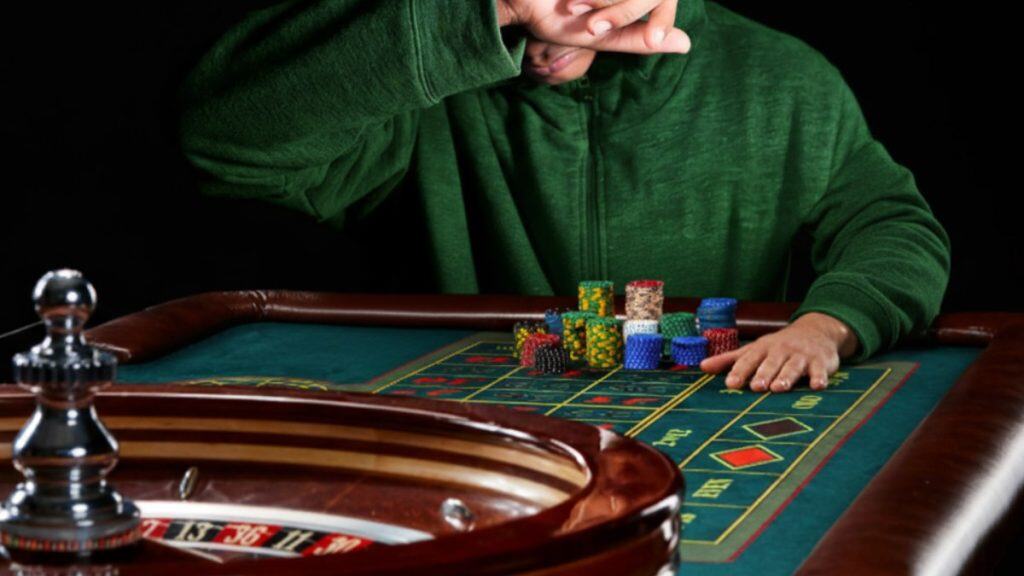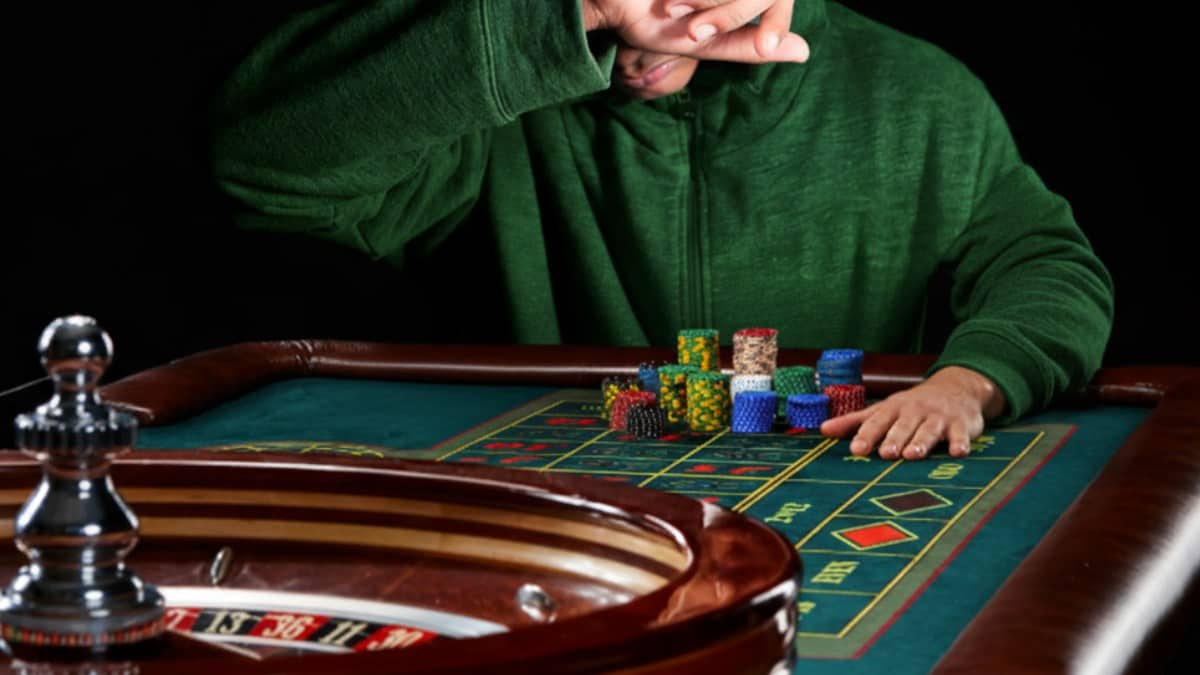
Gambling Addiction: Signs, Risks and Recovery Help

Gambling addiction continues to draw concern among public health professionals, researchers and policymakers as digital platforms bring new opportunities for play into daily life. The rise of real-time betting, mobile apps and expanded casino access has created new challenges for individuals vulnerable to problem gambling.
Industry observers point out that compulsive gambling not only threatens personal finances, but can also affect mental health, family stability and professional responsibilities. With new research highlighting links between gambling disorder signs and coexisting conditions such as anxiety and depression, awareness has never been more critical.
Understanding the nature of gambling disorder and learning about responsible play can equip individuals with tools to protect themselves from harm while keeping gambling a form of entertainment, rather than a source of crisis.
Understanding Gambling Addiction
The discussion around gambling addiction begins with recognizing how recreational play can cross into disordered behavior.
While many people gamble responsibly for leisure, a subset experiences significant harm when gambling becomes compulsive. Warning signs can emerge gradually and may include mounting debts, secrecy, emotional instability and strained relationships.
At the same time, online gambling addiction introduces unique risks tied to 24/7 accessibility and aggressive marketing tactics.
Gambling Disorder Signs and Risk Factors
Problem gambling is defined as persistent, recurring gambling behavior that disrupts daily functioning. Symptoms often include preoccupation with betting, wagering larger amounts to achieve the same excitement and continuing to place bets despite financial harm from gambling.
Many individuals facing these issues report mood swings, hiding their activities, borrowing money and jeopardizing work or personal connections. According to the National Survey on Gambling Attitudes and Gambling Experiences, these behaviors can escalate quickly without early detection or intervention.
The rise of online gambling has made access easier, often without the safeguards present in physical venues. Features like in-play betting and constant bonus offers can accelerate the cycle of losses and desperation.
Craving triggers gambling when players encounter notifications, emails or advertisements that reinforce urges to continue betting.
Online Gambling Addiction and Neutralizing Risks
Digital gambling platforms intensify the vulnerabilities of compulsive gambling by offering constant availability. Unlike traditional settings, online casinos provide anonymity, instant deposits and seamless access across multiple devices. This environment increases the likelihood of developing a gambling disorder if safeguards are not in place.
Protective steps include using gambling blocking software, setting strict deposit limits and enrolling in self-exclusion programs to temporarily remove access to betting accounts.
Industry experts emphasize the role of environmental design (removing cues and reducing triggers) to help individuals minimize risk. Pausing to create boundaries online can be an essential component of any relapse prevention plan.
Self-Assessment and First Steps
Identifying problem gambling early is a critical step toward recovery.
Self-check tools and immediate actions can help individuals gauge whether their behavior is drifting into risk and provide practical ways to pause before serious consequences arise.
Privacy safeguards also play an essential role in protecting personal data from being used to target vulnerable individuals.
Gambling Self-Assessment and Screening Tools
A gambling self-assessment can serve as a valuable first step for anyone questioning their gambling behavior.
Brief questionnaires, such as the Lie/Bet Screen or the Problem Gambling Severity Index, provide reflection points that highlight whether gambling is becoming compulsive. These tools are not a diagnosis; however, they can reveal patterns such as chasing losses, lying about gambling activities or needing to gamble with increasing amounts of money.
Research shows that engaging in a self-assessment often motivates people to explore gambling treatment options, including counseling, peer support groups for gambling and structured recovery programs.
It’s important to understand that dual diagnosis (anxiety/depression) conditions may complicate the picture, making professional evaluation necessary beyond the self-assessment. Awareness of these risk factors encourages individuals to seek gambling addiction help before harm escalates.
Practical Pause Strategies and Data Safety
The first 24 to 72 hours after realizing gambling may be problematic can be decisive. Practical pause steps include handing financial control to a trusted person, deleting gambling apps and scheduling an appointment with a counselor or helpline. Self-exclusion programs offer an additional layer of support by restricting access to betting accounts and venues.
In the digital space, gambling blocking software can create barriers that reduce impulsive play.
Privacy and data security measures also help limit exposure to advertising and re-targeting tactics used byreal-money online casinos. Securing email accounts, cleaning up app permissions and utilizing spam filters can prevent companies from sending bonus offers and ‘free play’ incentives to individuals actively trying to reduce their gambling.
These strategies serve as essential coping skills gambling recovery can depend on, protecting both financial resources and mental well-being during vulnerable moments.
Treatment Tools for Debt & Gambling Recovery
Structured support can transform compulsive gambling from a cycle of crisis into a path toward long-term stability.
Evidence-based therapies, group support and personalized coping techniques offer multiple avenues for individuals seeking to minimize harm.
Recovery is not a linear process, but a combination of treatment methods and self-managed strategies can create a strong foundation for lasting improvement.
Gambling Treatment Options and Therapy Approaches
Mental health professionals often recommend Cognitive Behavioral Therapy (CBT for gambling) as a leading option to challenge irrational beliefs and replace harmful behaviors with healthier decision-making.
Motivational interviewing helps individuals identify personal reasons for change, while peer support groups for gambling create accountability and shared understanding. Financial counseling also plays a role by providing guidance on debt and gambling recovery strategies that help stabilize household budgets.
According to the Substance Abuse and Mental Health Services Administration (SAMHSA), integrating treatment for gambling disorder with broader care for dual diagnosis conditions, such as anxiety or depression, improves long-term outcomes.
Clinicians emphasize that no single method works for everyone, but combining different gambling treatment options builds recovery capital that supports lasting change.
Coping Skills, Urge Management and Relapse Prevention
The high of a win and the consequential craving triggers gambling urges, and addressing this phenomenon requires proactive strategies. Techniques such as delay-distract-disclose and urge surfing techniques teach individuals to ride out impulses rather than act on them.
Mapping triggers by identifying people, places and times of day associated with betting behavior helps design environments that minimize risk, while accountability check-ins with peers or professionals reinforce during high-risk moments.
Developing a relapse prevention plan further protects recovery progress.
By preparing ‘if/then’ scripts for setbacks, creating an emergency support call list and using gambling blocking software, individuals reduce the chances of returning to harmful patterns. Tools like a recovery capital checklist or a structured coping playbook help people monitor progress and sustain healthier habits over time.
Financial Stability
Problem gambling often leaves lasting financial harm that requires deliberate planning to repair.
Beyond emotional stress, mounting debts and unpaid bills can erode stability if left unaddressed. Rebuilding control begins with clear triage steps and practical tools designed to protect essential resources and manage obligations in an organized way.
Debt and Gambling Recovery Strategies
Financial triage is a process of prioritizing urgent needs while limiting further damage. Common approaches include freezing credit lines to prevent additional borrowing, contacting creditors to renegotiate payment schedules and ensuring that essential expenses, such as rent, utilities and food, remain protected as top priorities.
Creating a no-gamble budget sets aside funds only for crucial expenses, reducing the temptation to allocate money toward betting.
Counselors who specialize in debt and gambling recovery emphasize that transparency is key. Opening communication with banks and creditors can prevent legal action and help individuals access hardship programs. Separating personal accounts from shared household funds further protects family members from financial instability linked to compulsive gambling.
Tools and Resources for Financial Triage
Practical resources can make recovery more manageable. A Financial Triage Pack, for example, may include a worksheet to track essential expenses, a debt ladder to identify which payments to prioritize and a script for creditor calls. These tools encourage accountability while giving individuals a clear structure for regaining financial stability.
Professionals also highlight the role of community support. Some support groups for gambling provide financial literacy sessions, where participants learn coping skills for gambling recovery alongside debt management strategies.
Combining structured tools with peer accountability strengthens both financial and emotional resilience. Access to reputable financial counseling helps individuals regain confidence in managing their finances responsibly after experiencing gambling losses.
Support Systems and Urgent Help
Recovery from gambling addiction rarely happens in isolation. Families, friends and professional networks provide essential layers of support that reinforce healthier choices.
At the same time, knowing when to seek urgent intervention is crucial for preventing crises related to financial collapse, domestic conflict or self-harm.
Family Support Gambling and Crisis Awareness
Boundaries are a cornerstone of family support gambling needs. Experts recommend avoiding financial bailouts while encouraging accountability through shared control of household finances.
Compassionate scripts can guide conversations that strike a balance between firmness and empathy, ensuring loved ones feel supported without enabling harmful behavior.
Recognizing crisis signs such as escalating secrecy, borrowing or withdrawal from daily life can prompt timely professional help.
Support groups for gambling also provide resources for families, giving them education on problem gambling, strategies for protecting their own well-being and connections with others facing similar challenges.
When combined with professional counseling, these groups help relatives and friends establish boundaries that reinforce recovery rather than perpetuate harm.
Urgent Gambling Addiction Help and Resource Access
Immediate action is necessary when gambling disorder escalates into thoughts of self-harm, domestic violence or severe financial collapse. Hotlines and crisis counseling services provide rapid access to trained professionals who can de-escalate potentially dangerous situations and connect individuals to longer-term care.
Many programs integrate referrals to dual diagnosis treatment centers, recognizing that co-occurring conditions such as anxiety and depression often accompany compulsive gambling.
Resource directories are valuable for directing individuals to region-specific counseling services, peer groups and financial support programs. These listings can also include gambling blocking software, self-exclusion programs and relapse prevention plan templates that individuals and families can adopt quickly.
Together, these tools provide practical steps for safeguarding health and stability during moments of acute need.
Reining in Compulsive Gambling in the Future
Compulsive gambling remains a public health challenge, but awareness and structured recovery strategies offer clear ways forward.
By addressing gambling disorder signs early, using self-exclusion programs and strengthening support networks, individuals can protect both their finances and their well-being. The integration of treatment approaches, financial planning and community resources shows that sustainable recovery is possible.
With continued focus on responsible play and broader access to gambling addiction help, the industry and its participants can build safer pathways for entertainment without leaving lives in crisis. Staying informed and connected ensures progress, and ongoing updates on recovery tools and strategies will be vital for those seeking stability and lasting change.